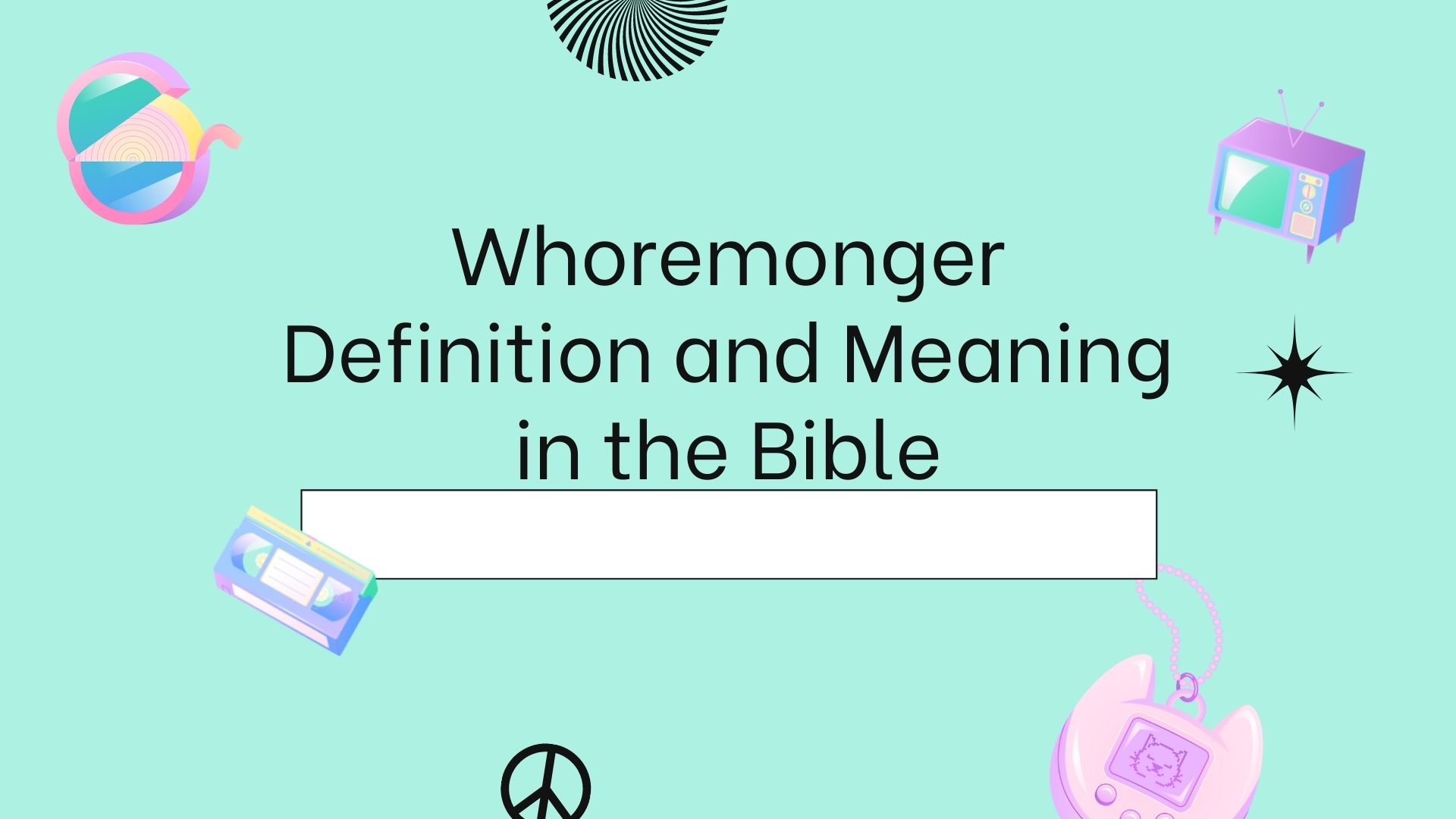The word whoremonger has a bad ring to it. But, in the Bible, what exactly is whoremonger?
Here’s a quick reference guide to help you learn the word “whoremonger” quickly.
You’ll learn the following things about the word “whoremonger” in this quick reference guide:
- The origin of the word whoremonger
- The definition of the word whoremonger
- The Bible verses and scriptures contain the word whoremonger.
Origin of the word whoremonger:
When learning the definition of any word, the whoremonger definition or any other, it is important to make a quick study of the word’s origins in other languages.
In this case, the word whoremonger in the Bible originated from the Greek word “pornos”.
Gk: pornos /por·nos/]
Whoremonger definition:
The definition of the word whoremonger is: Someone who regularly engages in sexual immorality. A fornicator, a prostitute, an adulterer. A person who indulges in sexual lewdness.
(For additional information, the word whore [porne] appears 14 times in the Bible.)

Bible verses that contain the word whoremonger:
Ephesians 5:3–5 “But fornication (porneia), and all uncleanness, or covetousness, let it not be once named among you, as becometh saints; 4 Neither filthiness, nor foolish talking, nor jesting, which are not convenient: but rather giving of thanks. 5 For this ye know, that no whoremonger (pornos), nor unclean person, nor covetous man, who is an idolater, hath any inheritance in the kingdom of Christ and of God.”
“They knew it, being informed of it by the Christian religion,” Matthew Henry said of Ephesians 5:5.
Some people think of a covetous man as a lewd, lascivious libertine who indulges in the vile lusts that were once considered certain marks of a heathen and an idolater.
Others understand it in the common sense of the word, and such a man is an idolater because the love of this world contains spiritual idolatry.
As the epicure makes a god of his stomach, the covetous man makes a god of his money, putting his affectations on it, and placing his hope, confidence, and delight in worldly goods that should be reserved for God alone
Instead of serving God, he serves mammon. These people are said to have no inheritance in the kingdoms of Christ and God; that is, the kingdoms of Christ, who is God, or the kingdoms that are God’s by nature and Christ’s as Mediator, the kingdoms that Christ has purchased and that God bestows.
Heaven is described as a kingdom here (as it is frequently elsewhere) in terms of its majesty and glory, fulness and sufficiency, and so on. The saints and servants of God have an inheritance in this kingdom because it is the inheritance of the saints in light.
However, those who are impenitent and indulge in the lusts of the flesh or the love of the world are not Christians, and thus do not belong to the kingdom of grace, nor will they ever enter the kingdom of glory.
Let us then be on our guard against those sins which would exclude and shut us out of heaven. (2.) These sins bring the wrath of God upon those who are guilty of them: “Let no man deceive you with vain words, etc.,” – Matthew Henry’s commentary on the whole Bible: complete and unabridged in one volume
We hope that this quick reference guide on the “Whoremonger Definition and Meaning in the Bible” was a helpful resource
